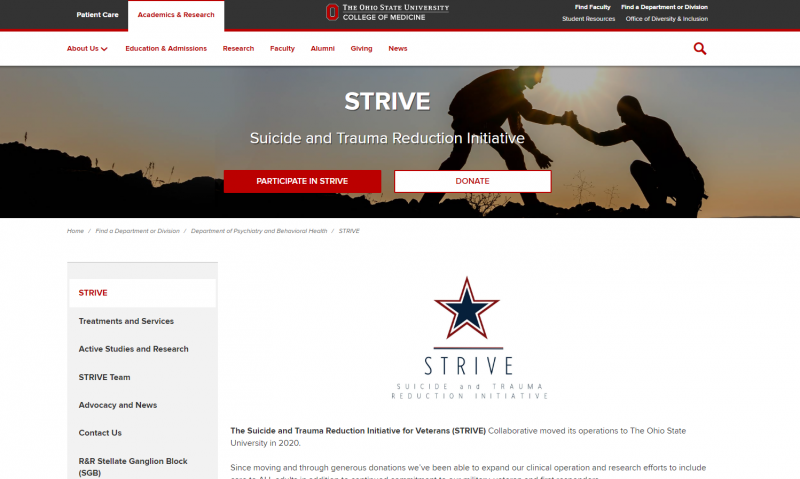
Ohio State is leading the DoD-approved research that will compare the effectiveness of two non-medication psychotherapies for reducing suicide attempts, suicidal ideation and other quality of life indicators.
American Legion members are invited to participate in a research study to compare the effectiveness of two non-medication psychotherapies for reducing suicide attempts, suicidal ideation and other quality of life indicators.
Dr. Craig Bryan, an American Legion member, is leading the study, Military Suicide Prevention Intervention Research (MSPIRE), for Ohio State University. Bryan, director of OSU’s Division of Recovery and Resilience, is a board-certified clinical psychologist with expertise in cognitive-behavioral treatments for individuals experiencing suicidal thoughts and post-traumatic stress disorder.
The study has already received regulatory approval from an Institutional Review Board and the Department of Defense’s Office of Human Research Oversight. OSU researchers are currently looking to recruit 150 more U.S. military personnel and veterans for this study.
To see if you might be eligible for this study, visit this link to answer a series of questions. These pre-screening questions will take approximately 10 minutes to complete.
Volunteers will first meet with a member of the research team remotely through secure teleconferencing software such as Teams to complete the consent process as well as questionnaires and interviews. If eligible, they will then meet with study clinicians to complete 12 to 16 one-hour therapy sessions. Volunteers should expect to start immediately upon acceptance.
For the first four weeks, participants will be asked to wear a Fitbit and complete brief surveys sent to their smartphone multiple times per day. They will also be asked to complete follow-up assessments every three months for two years. These follow-up assessments can be completed online and via phone.
Study results will improve interventions and treatments to reduce suicide risk and improve quality of life among military personnel and veterans, which ties into The American Legion’s Be the One mission to reduce the number of military-affiliated people lost to suicide.
During the study, participants will receive an intervention to reduce their risk of attempting suicide and improve their wellbeing. If all study assessments are completed, participants could receive up to $522.
- Be the One

